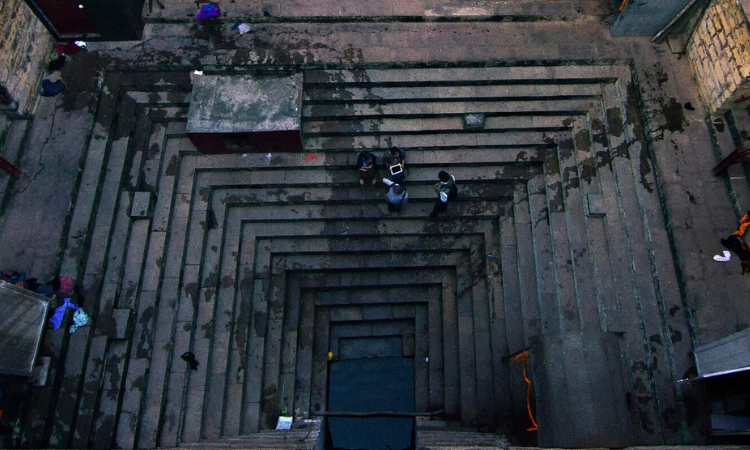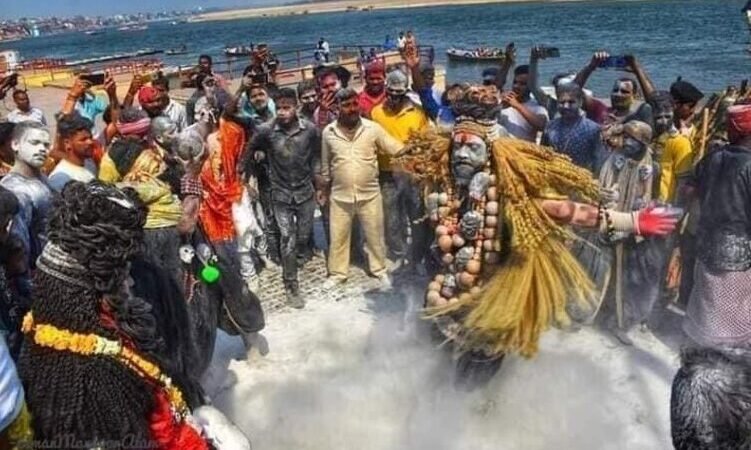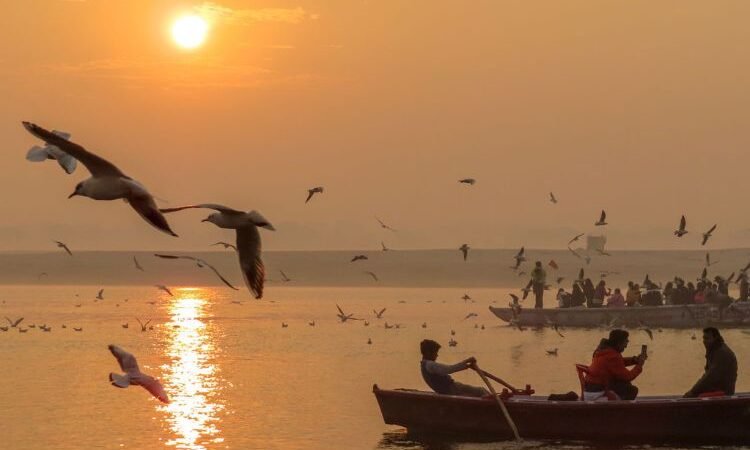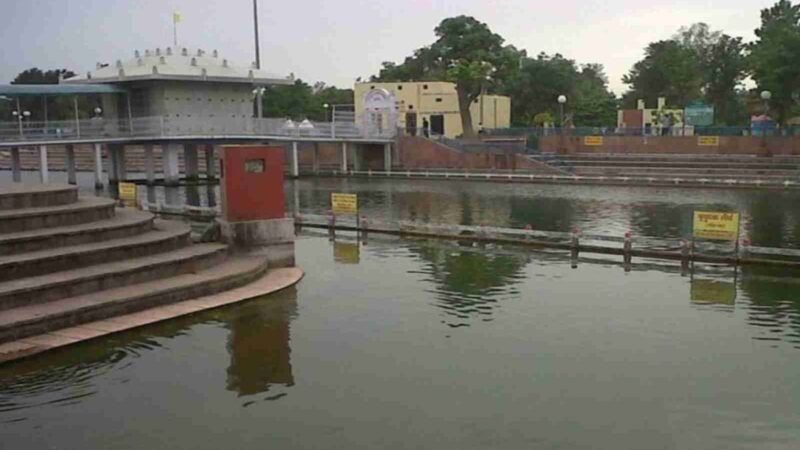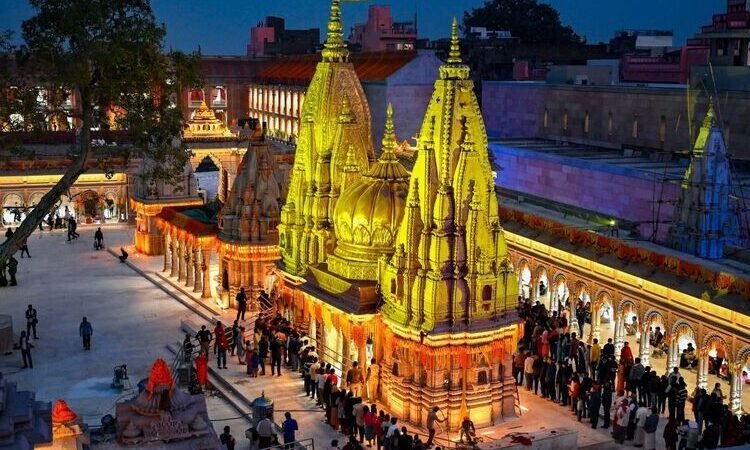Festivals in Varanasi: The Grandest Celebrations in The City of Lord Shiva

Varanasi is a cultural centre of India, and true to its nature, there are many festivals celebrated in Varanasi. These festivals in Varanasi go on for days and sometimes even months and are a time when people get together and celebrate.
Some of these festivals are unique to the city, while some are celebrated all over India. The close-knit Banarasis enjoy music, food and worshipping on these festivals. These events hold massive importance both religiously and culturally for the city. The experience is a must-try one if you are visiting Varanasi.
Budhwa Mangal
Budhwa Mangal takes place on the last Tuesday of the Bhadrapad month in the Hindu Calendar. The festival is to celebrate and worship Lord Hanuman. On the same day of the festival celebrations, during the time of Ramayana, Ravana set Lord Hanuman’s tail on fire. After that, Lord Hanuman proceeded to set fire to Lanka, the city of Ravana.
People believe that Lord Hanuman did not just burn the city, but that he burnt the greed and pride of Ravana. The devotees worship Lord Hanuman and celebrate the demolishing of evil. This festival is only a month before Dussehra, which is a festival celebrated all over India. Budhwa Mangal is one of the most unique festivals in Varanasi.
Also Read: Budhwa Mangal in Varanasi- An Ode to Lord Hanuman
Nag Nathaiya
The origin of the Nag Nathaiya festival in Varanasi dates back to the Mahabharata. In an excerpt of the Mahabharata, Lord Krishna accidentally dropped a ball he was playing with, in the river. He dived in to retrieve it but faced an enormous snake named Kaliya. The snake had terrorized the residents and made the water poisonous, but upon fighting with Lord Krishna, was defeated. The snake carried Lord Krishna to the surface, and the water became clean again.
This scene of Lord Krishna standing on the snake as it lifts him is reenacted each year on Tulsi Ghat. Kashi Naresh, alongside hundreds of locals and tourists, attends this event. It is, after all, one of the most popular festivals in Varanasi. The scene depicts the victory of good over evil, so it holds much importance to the people.
Also Read: Nag Nathaiya Festival Varanasi – An Epitome of Krishna Leela
Bharat Milap
The origin of this festival dates back to almost five centuries when a disciple of Tulsidas named Megha Bhagat dreamt of it. He wrote the script for the drama, and it took place in Nati Imli. He passed away after the climax, and ever since, Bharat Milap has been conducted each year as part of the Ramleela function.
The Maharaja of Varanasi attends the function as well, alongside many locals and tourists. In the play, the actors depict the story of Lord Rama reuniting with his brother after a long time. Though the event is short, a massive crowd gathers there to witness the reenactment of an important historical event.
Also Read: Bharat Milap in Varanasi- A Centuries Old Tradition of Kashi
Ganga Mahotsav
This festival in Varanasi involves the worship of Mother Ganga, the river that provides life and livelihood. The river is the main source of water and is considered a holy being by the people of Varanasi. This festival is more recent than the others but is one of the most vibrant festivals in Varanasi.
The festival goes on for five days, sometime after Diwali, and includes diverse cultural activities. The music and dance culture of the city is especially prevalent, and various famous artists perform at this festival. Other popular cultural aspects like food, theatre, handicrafts are frequent throughout the Ganga Mahotsav Varanasi.
Dev Deepawali
Dev Deepawali in Varanasi is one of the most important festivals in Varanasi when people gather on the banks of the holy river Ganga to celebrate. The name itself consists of two words: ‘Dev’ which means deities, and ‘Deepawali’ which means Diwali, the festival of lights. On this day, people believe that gods descend from the heavens to take a bath in the holy river.
On this day, people visit the ghats and illuminate them with diyas and candles, similar to Diwali. On Kartik Purnima, the people unite and take a dip in the holy river alongside the deities and rid themselves of negative energy and welcome harmony. The event is a social and religious one that binds the crowds together in their devotion towards the deities.
Also Read: Dev Deepawali in Varanasi- A Unique Festival of Lights
Shravan Maas
Shravan Maas is a month in the Hindu calendar that falls in July, during which devotees of Lord Shiva visit Kashi and worship him. When Lord Shiva faced the Samudra Manthan, lots of jewels came out along with poison. Lord Shiva drank the poison, which is why his throat turned blue. To help reduce the ill effect of it, he put a crescent moon on his head, and the water of the Ganges was offered to him by the other gods.
Every year, thousands of devotees flood to the city to offer Lord Shiva the water from the Ganges to aid the poison he consumed for the benefit of all. The month is one of the holiest months as per the devotees. Every Monday, the devotees worship Lord Shiva and offer milk to Shivalings as well.
Conclusion
The festivals in Varanasi are diverse and vibrant, displaying the rich cultural heritage of the city. They are ways to experience the lifestyle and cultural activities of the people.
These festivals go beyond religion as they are a way people can gather and rejoice together. They are something every visitor must try to get a genuine taste of the culture of Varanasi.
Frequently Asked Questions
Are festivals and social events costly?
Most festivities in Varanasi are conducted in a public area, so they are free of cost, additional costs of food and clothes might vary.
Are crowded festivals safe?
Though Varanasi is a relatively safe place, one can never be sure enough. Make sure to keep your wallet and phone in a secure pocket or bag before you enter a large crowd.
Is there specific attire for these events?
There is no particular dress code for such events but it would be better to wear traditional clothes, which can be found easily.

